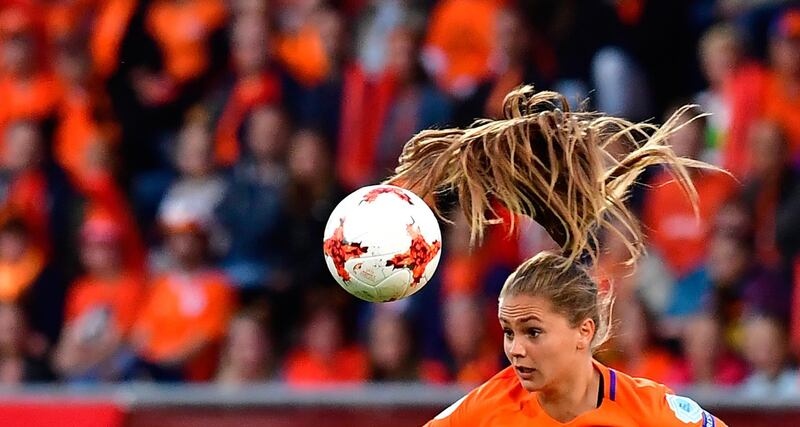The lesson I was supposed to learn this week is that women – especially Muslim women, with brown skin and headscarves – should think twice before expressing opinions publicly.
It began with an innocuous tweet I sent out during the World Cup quarter final game between England and Sweden that my seven year old daughter was watching with us. She wondered out loud why we as a nation get so excited by all the men running around, but we don’t have the same response to the female game. I liked that she was able to see systemic issues of inequality, and tweeted her observation as I often do.
What I did not expect was an episode of trolling that lasted four days. It ranged from: "Says the woman who wears a headscarf as a result of religious subservience and has to celebrate her religion in a different room to the men," to the less elaborate "Shut the [bleep] up" and "Back to the kitchen".
People told me about the Women’s World Cup, which I already knew. I also know that Theresa May being the UK prime minister has not eradicated the problems of gender representation, and Barack Obama being the US president has absolutely not eliminated that country’s significant issues of racism.
I flagged the men’s World Cup as "the one everyone watches" specifically to highlight this disparity between the men’s and women’s events, because although the women’s game is slowly and steadily growing in scale and popularity, it is nowhere near as enormous as the men’s game.
One tweet during the England versus Croatia match on Wednesday pointed out that while the game was described as England's first semi final for 28 years, in fact it’s only three. Yes, 28 years since the men reached a semi final, but only three for England's women.
I was barraged with comments pronouncing that the men’s game is better, that men are more talented and skilful, faster, stronger, superior. And yet anyone who has actually watched women’s football, as I have, will tell you how exciting it is, with high levels of skill and finesse.
In most cases when men are deemed to be better than women, it is usually either a case of conditioning the viewer to believe men are better, or being so used to seeing men that women's views appear strange. All-male panels are such a phenomenon. The other is the systemic issues that pump greater investment into male proponents, give them superior facilities and better media coverage, creating the impression that the male equivalent is inherently better and more popular.
___________________________
Read more from Shelina Janmohamed:
[ Today too many men are migrating to the dark side ]
[ Make your selfies the souvenir, not the experience, at this year's Hajj ]
[ Denying the discrimination of British Muslims is its own twisted form of Islamophobia ]
___________________________
This systemic problem cuts across every aspect of culture, politics and sports. Football is just one example.
None of this is designed to advance an agenda, or be an attention-seeker – as so many trolls accused me of being. One of the most popular comments was to tell me that this simply "didn’t happen" and nominate me for a sort of troll-Oscar award called the "Didn’t Happen Of The Year Awards".
The several hundred tweets that called for my nomination, show a startling lack of unoriginality. A trope used by hate perpetrators against Muslims is to claim "brainwashing", yet here they were, duplicating the same lines of hate, word for word.
In addition, apparently female genital mutilation, terrorism and rape gangs are appropriate counter-arguments to a tweet about football. And somehow I was both too opinionated and also too silent, because my husband was allegedly monitoring me. Suffice to say hate speech is neither logical nor original.
All of which demonstrates why such mass trolling is so damaging to the health of not just the victims, but of societies as a whole.
Behind the hate, I see a resistance to changes in the public space and greater involvement of women. Underpinning it is the view that women should not have opinions about the world, our place in it and how it needs to change.
One of the purposes of hate is to exhaust our energy and resources in tackling aggression, rather than devoting them to controlling our own lives and futures.
It will succeed in silencing many of the men and women who put their heads above the parapet to express their opinions. Like all of us, they have lives to lead and mental health to protect. But societies benefit from variety, opinions and change.
So if you see someone being trolled – online or in real life – I encourage you to support them. Without it they might disappear from public life. No matter how petty, bigoted and unimaginative the haters get, we must not be silenced.
Shelina Janmohamed is the author of Love in a Headscarf and Generation M: Young Muslims Changing the World





